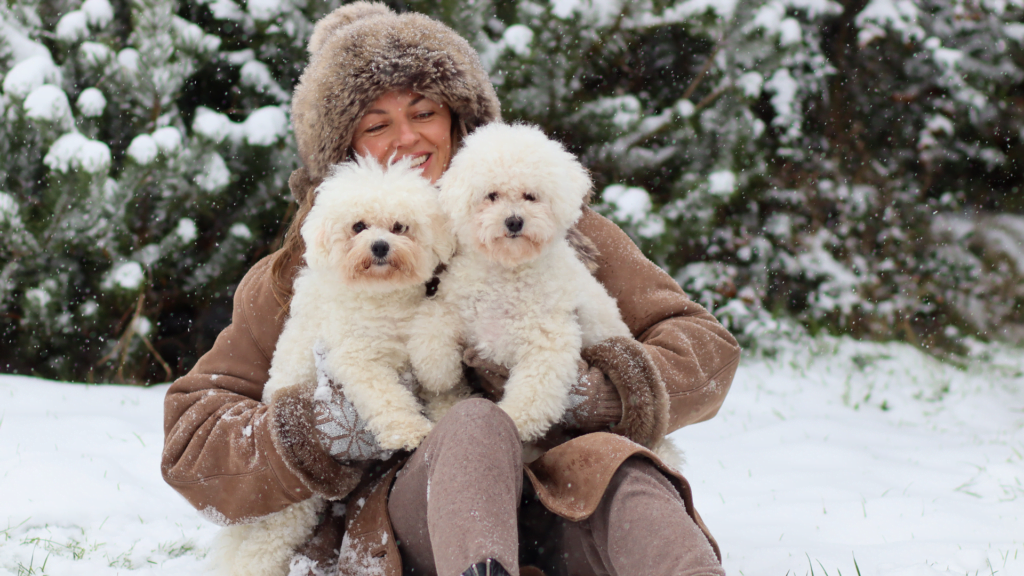Table of Contents
The Bichon Frise is a charming and affectionate breed known for its friendly disposition and sociable nature. Understanding the social needs of the Bichon Frise is essential for ensuring their happiness and well-being. This guide explores how to meet the social needs of this delightful breed effectively.

The Importance of Socialization for Bichon Frises
Socialization is crucial for the Bichon Frise to develop into a well-adjusted and confident adult. Early and consistent socialization helps prevent behavioral issues and ensures they are comfortable in various situations. For more on the importance of socialization, visit AKC Importance of Socialization.
Early Socialization for Bichon Frise Puppies
Start socializing your Bichon Frise puppy as early as possible. Introduce them to different environments, people, and other animals in a controlled and positive manner. Puppy classes and playdates are excellent ways to begin. For more on early socialization, visit ASPCA Dog Socialization Tips.
Regular Interaction with Family Members
The Bichon Frise thrives on human interaction and enjoys being a part of family activities. Ensure they spend ample time with family members daily, engaging in play, training, and cuddling. For more on engaging with your pet, visit Humane Society Training Tips.
Socialization with Other Dogs
Interacting with other dogs is essential for the social needs of the Bichon Frise. Regular visits to dog parks, playdates, and doggy daycare can provide the social stimulation they need. For tips on socializing with other dogs, see The Spruce Pets Dog Socialization.
Exposure to New Environments
Expose your Bichon Frise to various environments to build their confidence and adaptability. Take them on walks in different neighborhoods, visit pet-friendly stores, and include them in family outings. For more on exposing pets to new environments, visit AKC Socialization Guide.
Positive Reinforcement Training
Use positive reinforcement techniques to train your Bichon Frise. Reward-based training helps build trust and reinforces good behavior, making social interactions more enjoyable for your pet. For more on positive reinforcement, visit ASPCA Positive Reinforcement.
Preventing Separation Anxiety
Bichon Frises are prone to separation anxiety due to their strong attachment to their owners. Gradually acclimate your dog to being alone for short periods and provide toys and activities to keep them occupied. For more on preventing separation anxiety, see PetMD Separation Anxiety Tips.
Regular Grooming and Handling
Regular grooming sessions are not only essential for maintaining your Bichon Frise’s coat but also for socializing them to handling. Brush their fur, trim their nails, and clean their ears to get them accustomed to being touched and handled. For more on grooming, visit AKC Bichon Frise Grooming.
Playtime and Mental Stimulation
Engage your Bichon Frise in interactive play and mental stimulation activities. Puzzle toys, agility training, and games like hide-and-seek can keep them mentally sharp and socially engaged. For more on mental stimulation, visit The Spruce Pets Mental Stimulation.
Monitoring Behavioral Changes
Monitor your Bichon Frise for any changes in behavior that may indicate social or emotional issues. Address any concerns promptly with the help of a veterinarian or professional dog trainer. For more on monitoring behavior, see ASPCA Dog Behavior Issues.
Conclusion
Understanding and meeting the social needs of the Bichon Frise is key to ensuring they lead a happy and well-adjusted life. By providing early socialization, regular interaction, and mental stimulation, you can help your Bichon Frise thrive. For more tips on caring for this sociable breed, check out our Pet Care Guide.
FAQs on Social Needs of the Bichon Frise
How can I help my Bichon Frise get along with other dogs?
Regular socialization with other dogs through playdates, dog parks, and doggy daycare can help meet the social needs of the Bichon Frise and develop positive interactions with other dogs.
What should I do if my Bichon Frise shows signs of separation anxiety?
Gradually acclimate your dog to being alone, provide engaging toys, and consider consulting a veterinarian or professional dog trainer for additional strategies to address the social needs of the Bichon Frise.
How often should I take my Bichon Frise to the dog park?
Frequent visits to the dog park, ideally a few times a week, can provide the necessary social interaction and physical exercise to meet the social needs of the Bichon Frise.
What are some signs that my Bichon Frise is not getting enough social interaction?
Signs may include excessive barking, destructive behavior, withdrawal, and anxiety. Ensure your dog receives adequate socialization and interaction daily to meet the social needs of the Bichon Frise.
Can professional training classes benefit my Bichon Frise?
Yes, professional training classes can provide structured socialization, improve behavior, and strengthen the bond between you and your dog, helping to meet the social needs of the Bichon Frise.
How can I make my home more comfortable for my Bichon Frise?
Provide a safe, comfortable space with access to food, water, and toys. Ensure regular interaction and mental stimulation to keep your Bichon Frise happy and engaged, fulfilling their social needs.











